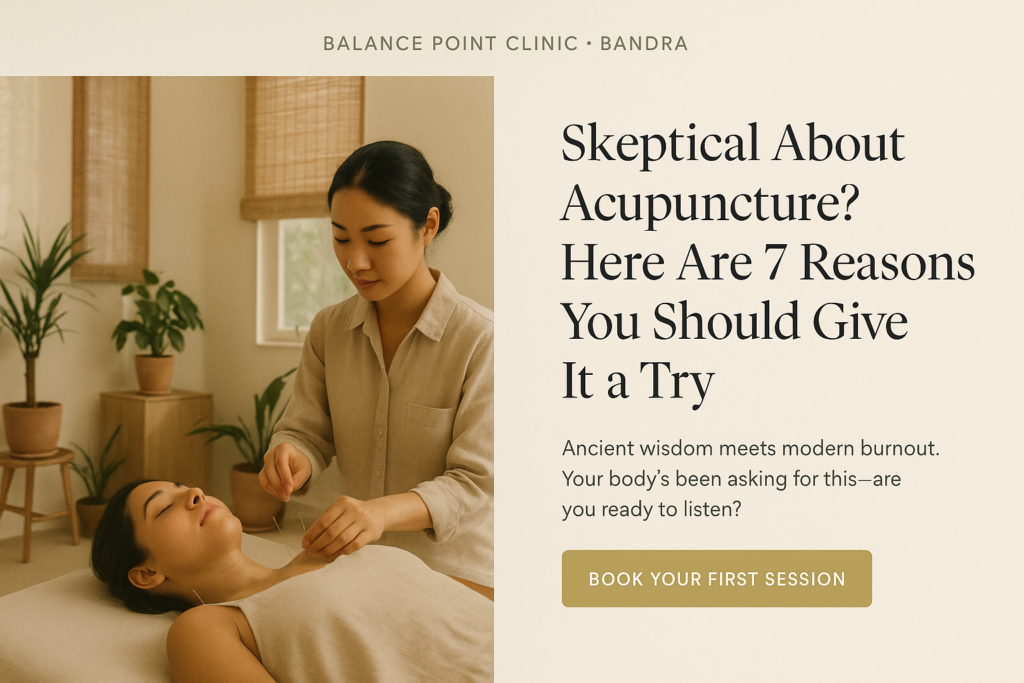
You know the feeling—you’ve tried everything. The yoga classes, the supplements your friend swore by, even those late-night deep dives into Instagram reels of lymphatic drainage face massages. And yet, the chronic back pain lingers, the stress headache pulses at your temple like clockwork, and that mysterious fatigue still hits at 3 PM like a freight train.
Maybe someone has whispered the word acupuncture to you, and maybe you laughed. “Needles? No thanks.” Maybe you nodded politely while inwardly thinking, How can something so ancient be relevant to my modern-day burnout?
I hear you. I was you.
But sometimes, when your body refuses to respond to the usual fixes, it’s not just crying out for relief—it’s begging you to look deeper. And that’s where acupuncture, the ancient art of healing rooted in Traditional Chinese Medicine (TCM), quietly steps in—not as a trend, but as a return to the wisdom your body’s been waiting for all along.
We sat down with Priya Samwani, Licensed TCM Expert and founder of Balance Point Clinic, Bandra, to unpack the truths, dispel the myths, and open a new door for the skeptics—those who need not just proof, but permission to believe in something radically different.
1. It Doesn’t Just Treat Symptoms—It Uncovers the “Why”
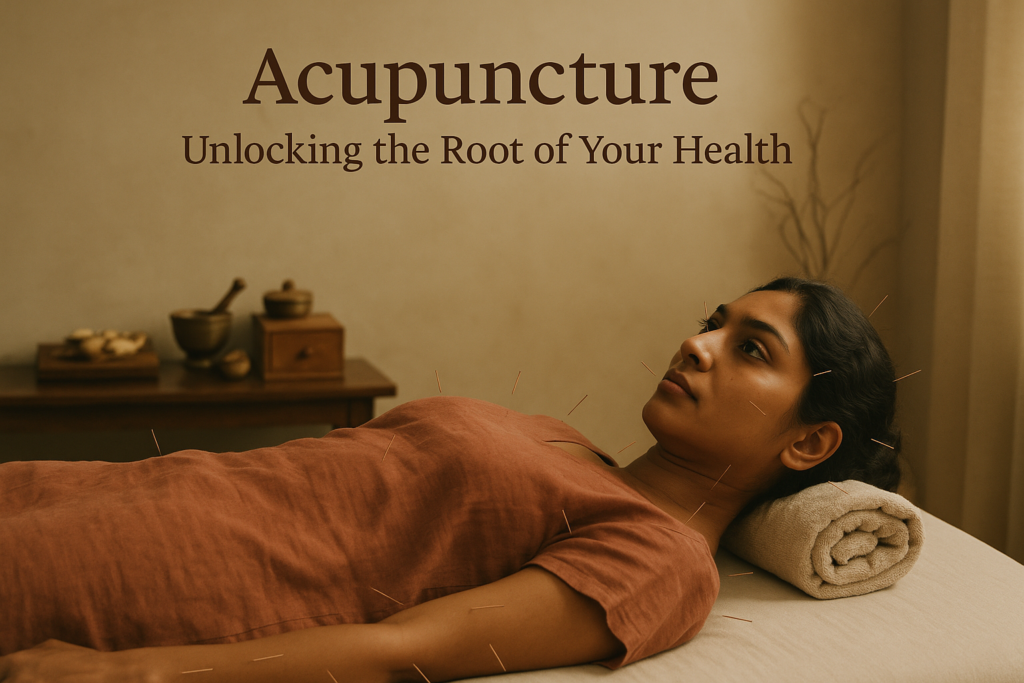
Most of Western medicine is designed to treat the “what”: You have migraines? Take this pill. IBS? Avoid this food. Anxiety? Try this app. But what if your body isn’t malfunctioning, but misfiring—sending messages you haven’t yet learned to decode?
“Acupuncture doesn’t patch problems,” says Priya. “It asks why they exist in the first place.”
In TCM, your body is viewed as an ecosystem of energy (or Qi) flowing through meridians. When that flow is blocked—due to stress, trauma, or lifestyle—imbalance arises. What you experience as chronic fatigue could be Liver Qi stagnation. Your sleepless nights? Possibly a Heart Yin deficiency. Instead of isolating symptoms, acupuncture looks at the entire terrain and recalibrates it.
2. The Science Is Catching Up to What TCM Has Known for Centuries
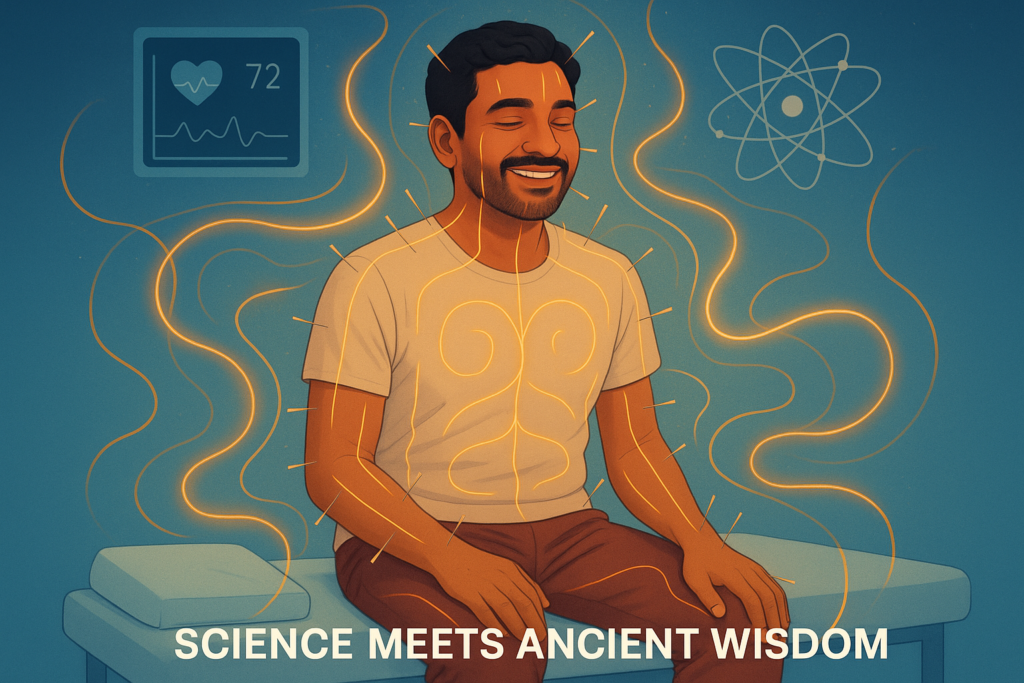
Yes, acupuncture is ancient—over 2,000 years old. But it’s not just folk wisdom. Clinical trials have shown that acupuncture stimulates the nervous system, boosts circulation, and releases endorphins (your body’s natural painkillers). It reduces inflammation, supports immune function, and helps modulate the stress hormone cortisol.
More than just anecdotes, it’s been endorsed by the World Health Organization for conditions ranging from migraines to insomnia to lower back pain.
Dr. Rajeev Mehta, a neurologist who often refers patients to acupuncture clinics across Mumbai, says, “We’re seeing measurable improvements in patients who don’t respond to pharmacology. Acupuncture fills a gap in modern medicine.”
3. You Don’t Have to “Believe” in It for It to Work
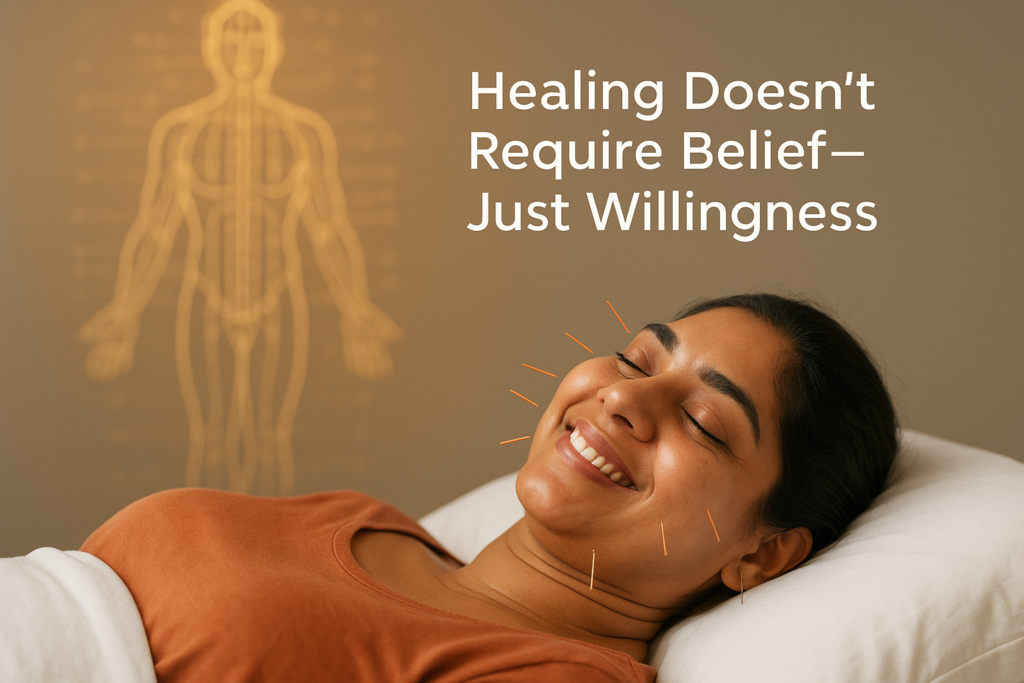
Here’s a secret: you can be skeptical and still heal. Acupuncture is not a placebo; it’s a physiological intervention that works whether or not you’re spiritually aligned with yin and yang.
Take Anusha, 32, a digital marketer who came to Balance Point after being diagnosed with trigeminal neuralgia. “I didn’t think it would work. I came out of desperation, not belief,” she says. “But after three sessions, the sharp facial pain reduced dramatically. Now, I don’t miss my appointments.”
Healing doesn’t require faith. Just willingness.
4. Acupuncture Treats the Mind as Much as the Body
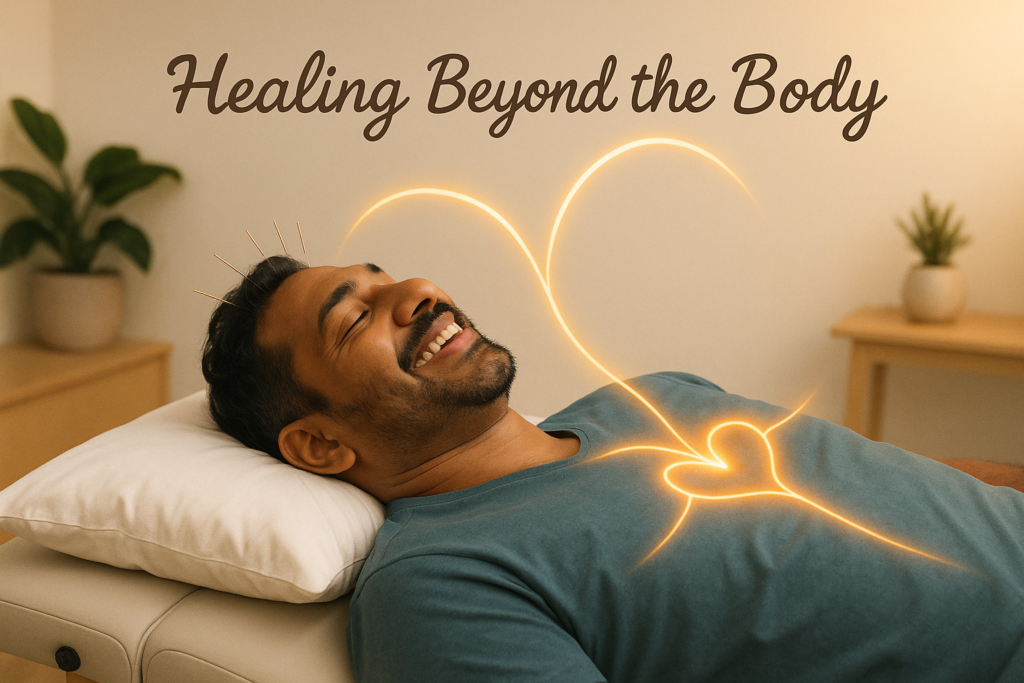
In TCM, anxiety isn’t just “in your head.” It’s a disturbance of the Heart. Depression is often a symptom of Liver Qi stagnation. Sleep disorders are tied to imbalances in the Kidney system.
This interconnectedness is what modern medicine often misses—treating mental health separately from physical health, when in reality, they’re entwined.
Rohan, 44, a Bandra-based creative director, was on anti-anxiety meds for five years. “I came to Balance Point not expecting a miracle. But within weeks, I felt grounded for the first time in ages. It wasn’t just about my panic attacks—it was about healing the system underneath them.”
Acupuncture is one of the few therapies that acknowledges the unspoken truth of our bodies: everything is connected.
5. It’s Not Just for Pain—It’s for Prevention
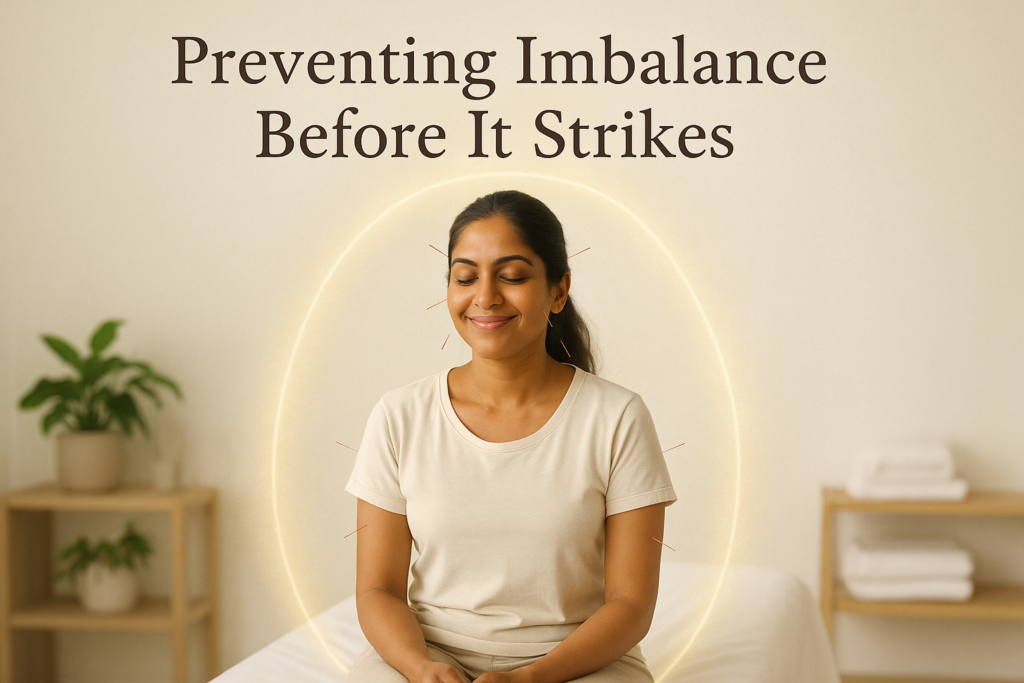
We usually seek treatment when we’re in crisis. But acupuncture thrives in the space between “fine” and “falling apart.”
“Many of our regular clients aren’t sick—they’re sensitive,” says Priya. “They’ve learned to use acupuncture to stay well, not just get well.”
From building resilience against seasonal flu to supporting hormonal balance, acupuncture acts as both shield and sword—nurturing your body’s ability to fend off imbalance before it manifests.
And in a post-COVID world where burnout has become a baseline, who wouldn’t want a system designed to nourish you before you break?
6. You’ll Actually Start to Hear Your Body Again
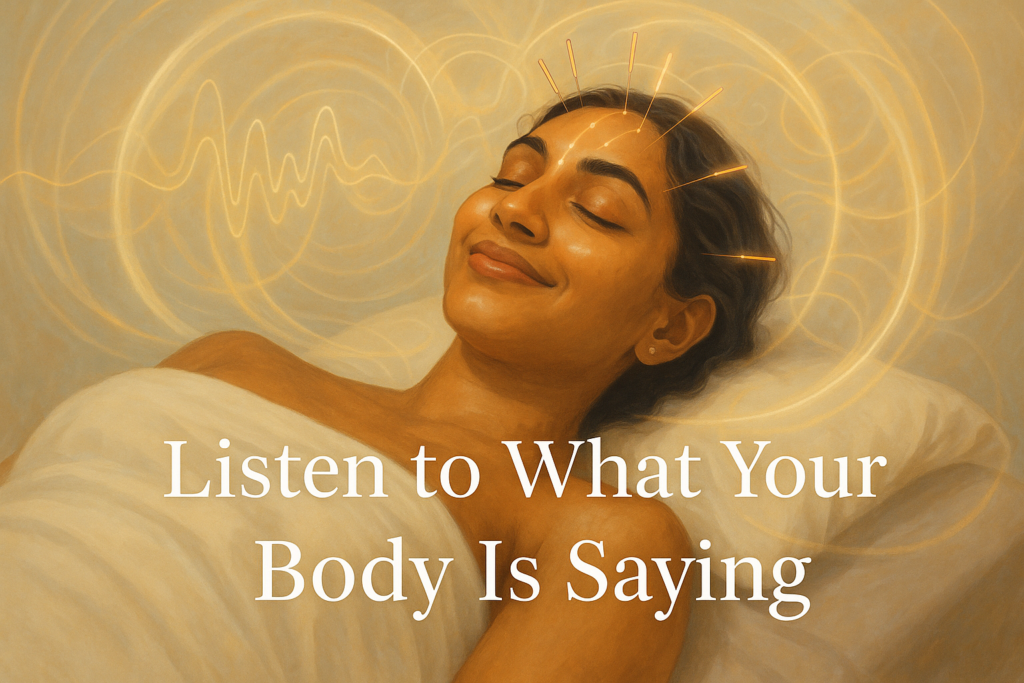
We live in a culture of numbing—scrolling, snacking, self-medicating. Acupuncture invites you to feel. To sit still while the body unwinds in layers.
After a session, you may cry, sleep deeply, or feel like your body has just exhaled after years of holding its breath. That’s not coincidence—it’s alignment.
“Most of us are disconnected from our own signals,” Priya says. “Acupuncture gently tunes you back in. Clients will often say, ‘I finally heard what my body was trying to say.’”
And when you start listening, everything shifts—from how you eat to how you move to how you live.
7. It’s Not Woo-Woo—It’s Wisdom
We’re quick to dismiss what we don’t understand. But ancient doesn’t mean outdated. Acupuncture doesn’t promise magic—it offers medicine of a different rhythm.
In a city like Mumbai, where every moment is noise and motion, Balance Point and other clinics across the city offer silence and intention. “There’s nothing fluffy about what we do,” Priya emphasizes. “This is structured, studied, and deeply grounded work. It just doesn’t look like a prescription pad.”
Real Stories, Real Shifts
Meenal, 28, came in with hormonal acne that no dermatologist could solve. After five months of regular acupuncture and dietary shifts, her skin cleared—and her periods became regular. “I came for the acne,” she says. “I stayed because I started sleeping again.”
Vikram, 51, a banker with persistent sciatica, was minutes away from surgery. His wife booked him a trial session at Balance Point. “I rolled my eyes,” he admits. “Now, I tell my colleagues about how needles fixed what painkillers couldn’t.”
What to Expect at Your First Session
You won’t be rushed through a 10-minute consult. Expect a deep dive into your history—from your bowel movements to your emotional triggers. You’ll lie on a warm bed as ultra-fine needles (nothing like injections) are gently inserted along specific meridians. You might feel warmth, tingling, or nothing at all. Many people drift into a meditative sleep.
Afterward? A feeling like something shifted—even if you can’t name it yet.
Still Unsure? Here’s What You Don’t Need to Start:
- You don’t need to be in crisis.
- You don’t need to understand meridians.
- You don’t need to believe in “energy.”
- You don’t need to feel brave.
You just need to be curious enough to try something your body has probably been asking for, softly, for a long time.
Ready to Feel Different?
If you’ve read this far, it’s not by accident. Something inside you is already leaning in—tired of band-aid fixes, hungry for something deeper, more lasting. At Balance Point Clinic in Bandra, we offer acupuncture that doesn’t just treat symptoms—it rewrites your relationship with your body.
Whether you’re battling chronic stress, hormonal issues, insomnia, or something you haven’t yet found the right words—or diagnosis—for, we’re here to listen, guide, and support you through it.
Book your first session today and discover what your body has been trying to say all along.
